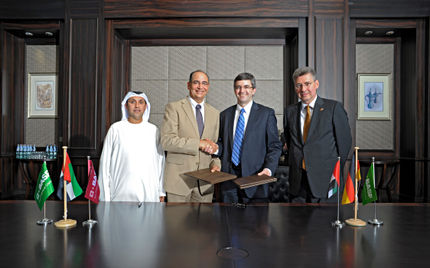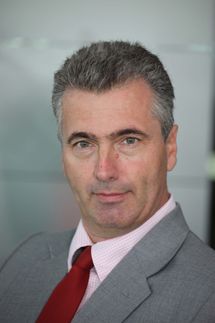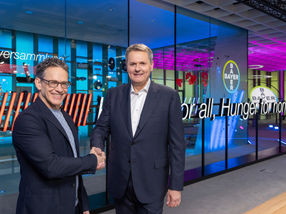BASF's Chairman: Growth in global economy is slower than expected
In light of continuing high raw material prices, weaker signs of growth in Europe, and no indication of an economic upturn in the United States, BASF is not expecting an increase in income from operations in the second quarter. "Nevertheless, we remain committed to our ambitious, medium-term goal and want to increase our income from operations before special items by an average of at least 10 percent for the years 2000 to 2002," said Dr. Jürgen F. Strube, Chairman of BASF's Board of Directors, at a meeting of the company's executive managers. "We will only achieve this goal through extraordinary efforts," he added. Strube called for the company's managers to more quickly transform innovation and investment into market success and to rapidly implement the action plan which the Board of Executive Directors has established.
These measures include:
The current capital expenditure program will be reduced by a fifth. In the medium-term, capital expenditures will be reduced to the level of depreciation. Globally, 10 sites and an additional 14 plants will be closed and thus production capacities will be taken off the market. The further development of the global organizational structure under the "Fit For the Future" program will be implemented at an accelerated rate.
"With these measures, we are adapting our business to the substantially slower economic growth worldwide," said Strube and referred to the current positive and negative influences on the company's business. In the course of the second quarter of 2001, the following factors negatively affected business:
The signs of growth in Europe, especially in Germany, did not strengthen, but rather became weaker. There were also no indications of an economic upturn in the United States in the second quarter. This is increasingly having an effect on economic growth in Asia. Some of BASF's new production plants in Asia and Germany are going on stream with delays and therefore have not yet contributed to earnings. The loss of production in the superabsorbents plant in Birkenhead, United Kingdom, has reduced income. The unexpected further increase in raw material prices cannot yet be fully compensated for by price increases to the extent necessary. Many customer expect the oil price to fall and thus have been reducing their inventory and are being cautious with their purchasing. BASF's continuing capital expenditure program in the United States is especially burdening earnings in the current weak economic environment.
However, there are also a number of favorable factors which positively influence BASF's business:
BASF is better positioned regionally than many of its competitors and benefits from the advantages resulting from its extensive Verbund structure. Its balanced portfolio allows BASF to benefit especially in times of a high oil price from additional earnings from its oil and natural gas business. In the United States, the lowering of interest rates and tax cuts support the expectation that the economy will revive at the end of the year. The company has achieved rapid market success with innovative products such as the crop protection system Clearfield® and the new class of thermal insulation called Neopor®. Through the worldwide restructuring of its internal organization, BASF expects annual cost advantages of about €400 million worldwide.
"We know we can count on our executives and employees to rise to the challenges of the difficult environment. This has been demonstrated by the successful integration of the crop protection business acquired from American Home Products last year. We will therefore also be able to maintain our position as a leading chemical company, even in a period of slower economic growth," said Strube.











































